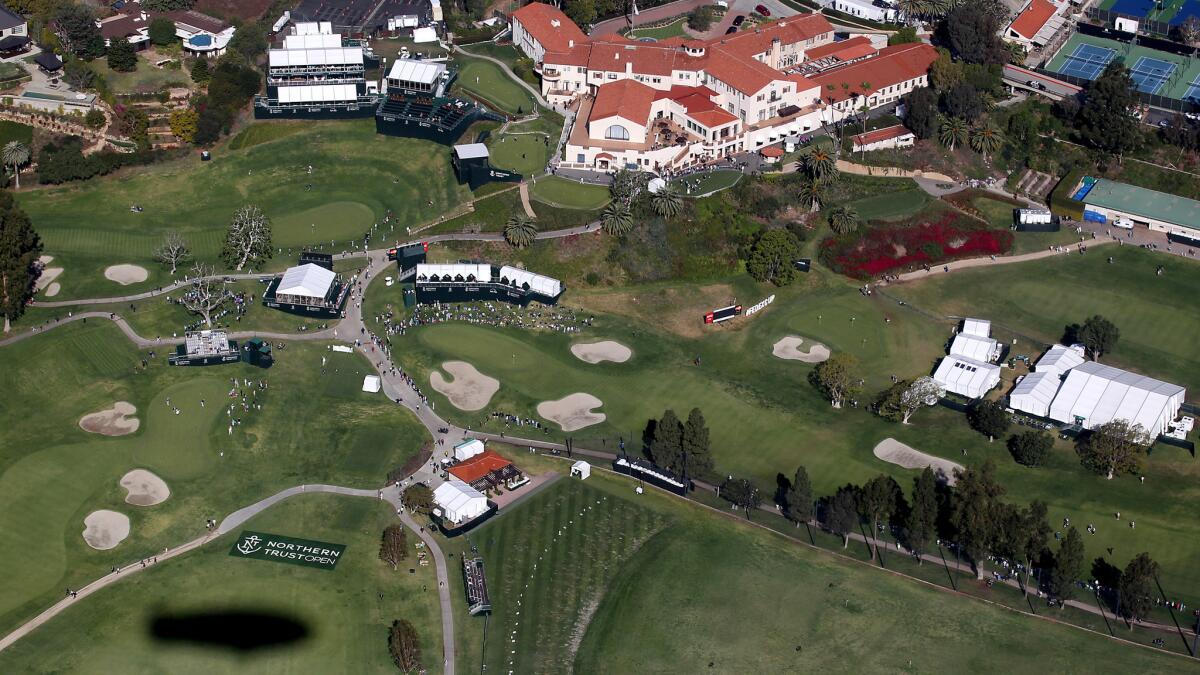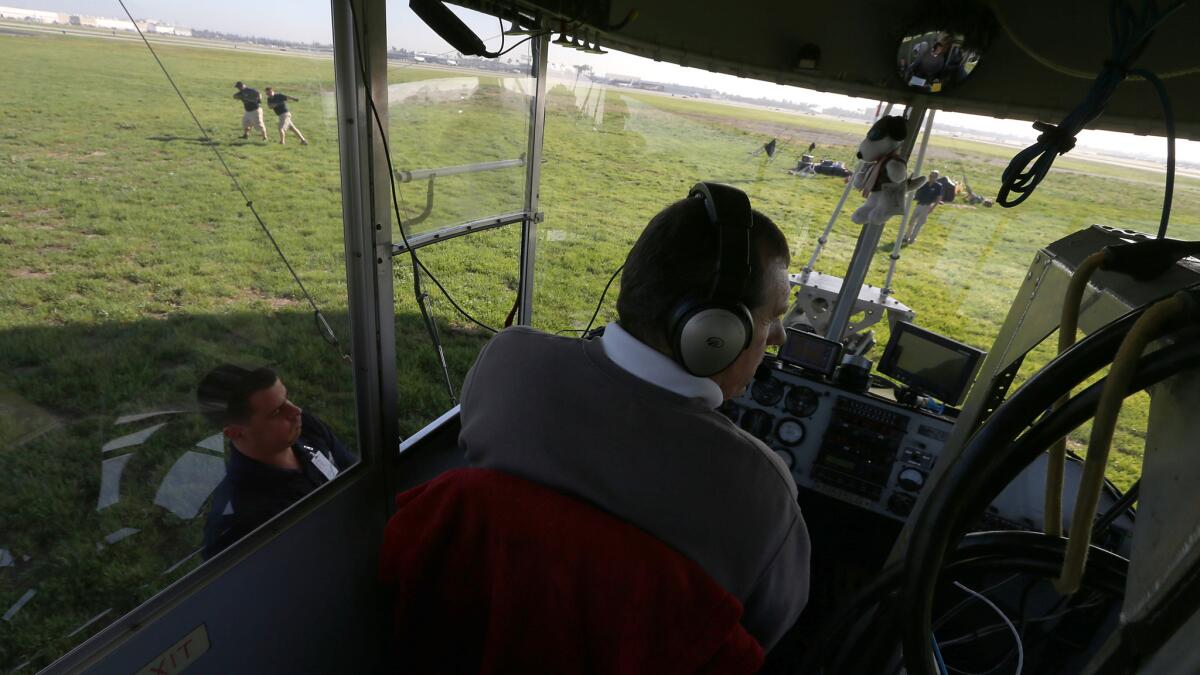Column: Despite what golf fans think, it’s not easy being in a blimp

An aerial view of Riviera Country Club, site of the Northern Trust Open golf tournament, taken from the MetLife blimp on Friday.
For whatever reason, I am in a blimp floating over Riviera Country Club, which sits below me like a Rolex — pricey and impossibly efficient for such tight quarters.
For whatever reason, I got to the blimp pad too early, after white-knuckling it down the 5 during morning rush hour. If you’ve ever been on the 5 in East L.A., you know that it isn’t really a freeway, but a series of exit and entrance ramps stitched together by Caltrans like some practical joke. They put up a few signs and called it a freeway, which is a little like calling a platypus a peacock.
For whatever reason, the captain of the Snoopy 2, the airship I am aboard far above all the urban crud — the SigAlerts, the police tape, the house fires, the road rage — says the MetLife blimp is “always perspiring helium.”
That’s right: My blimp is bleeding, right through its Kevlar skin.

Pilot Allan Judd prepares to take off from the Long Beach Airport at the controls of the MetLIfe blimp Snoopy Two on Friday.
For whatever reason, I really don’t care. Because if Camelot had a coastline, it would look like this. And I am floating above it in aviation’s version of a chubby Champagne bubble.
On this day, the MetLife blimp rides atop whispers and dirty thoughts over some of the most striking urban landscape in the world. The thermals push us up, then — as if pulling the table cloth away — the updrafts vanish and we nosedive a little. Below, there are buzzards and seabirds, and I think I see a small pod of whales.
Or are those golf fans?
Like them, blimps look to be lumbering creatures, but onboard the movements are sharper, more jiggy. On a river, you’re alerted to trouble by the white water ahead. In the air, the voodoo isn’t as visible, but it is there just the same, especially at the juncture of land and sea.
“It’s like a canoe in the river,” Captain Alan Judd says of his 128-foot-long airship.
Two thousand feet below, I can see the Friday gallery at Riviera, where they are holding the Northern Trust Open, banks being the very thing we trust the most these days. From the air, what is striking about Riviera are the sand traps, which are sculptural.
After the traps, most striking are the trees — walls of them, accompanied by canyons of the deepest shadows.
When Judd is taking shots for TV telecasts, he is careful to keep the sun behind him, so that it throws a moon glow off the ball and makes it pop on screen.
“Sometimes we can see the ball when the ground cameras can’t,” he notes.
Holding steady for an aerial shot is the hardest thing, he says, because he needs to keep air moving over the blimp to maintain control.
There are other things a blimp pilot needs to be aware of: The vessel’s shadow might cross a green during a putter’s backstroke, or the growling Rotax engines (same as jet skis) might spook some diva during his important drive.
There are also tailwinds off the ocean to keep track of, as well as conditions back at his Long Beach port, where late-afternoon landings can be perilous.
Judd, who has been flying blimps since 1990, says a golf tournament like this is far trickier than a football game, for which he merely has to stay on the press box side of the logo, set his altitude at 3,000 feet and pretty much just kick back.
No kicking back here at Riviera. Rudder right. Rudder left. Anticipate the shot, spin the yoke, hold that position, get a beauty shot of the coastline, keep an eye on the fuel.
Life golf, piloting a 3,200-pound airship just looks easy. And the travel’s atrocious.
“The value is not quantifiable,” Judd says of blimps in general, and a job that keeps him and his 12-man crew on the road 47 weeks a year.
Yet, in a fractured media world, it’s easy to see the feel-good value of a simple, iconic blimp.
For whatever reason, they just work.
Follow Chris Erskine on Twitter: @erskinetimes
More to Read
Go beyond the scoreboard
Get the latest on L.A.'s teams in the daily Sports Report newsletter.
You may occasionally receive promotional content from the Los Angeles Times.











